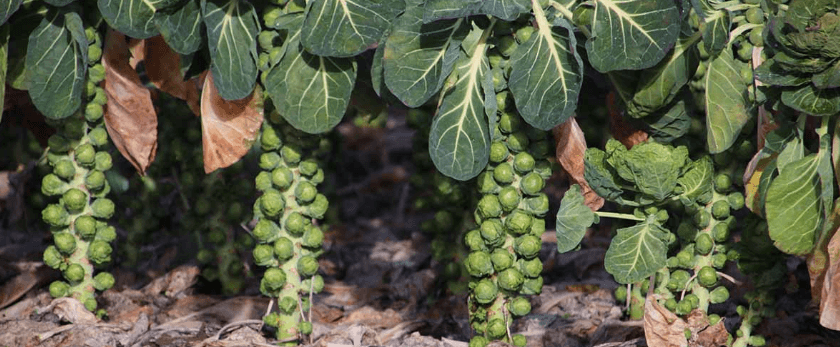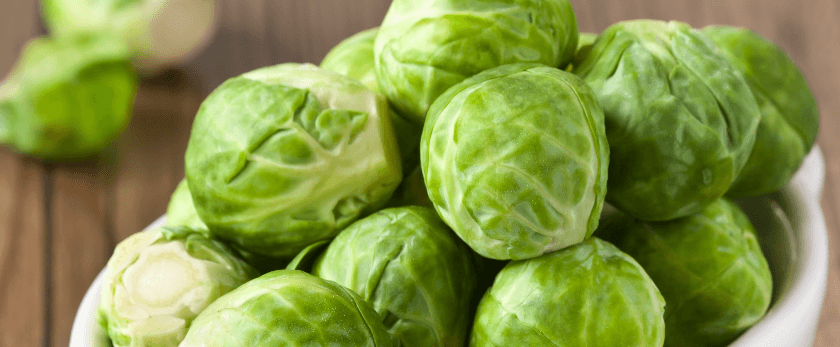Brussels sprouts are a delicious and nutritious addition to any garden. These miniature cabbages are packed with vitamins and minerals, and are a great source of fiber. Not only are they good for you, but they are also easy to grow and can be harvested throughout the fall and winter months. In this article, we will discuss how to care for brussels sprouts, the best time to grow them, and common problems you may encounter.
How to Care for Brussels Sprouts
Watering
Brussels sprouts require consistent moisture to thrive. They should be watered deeply once a week, providing about 1 inch of water. However, be careful not to overwater as this can lead to root rot. It is important to keep the soil evenly moist, but not waterlogged. Mulching around the base of the plants can help retain moisture and prevent weeds from growing.
Light
Brussels sprouts prefer full sun, but can tolerate partial shade. They need at least 6 hours of sunlight per day to grow and produce a good harvest. If you live in a hot climate, providing some afternoon shade can help prevent the plants from wilting.
Soil
Brussels sprouts grow best in well-drained, fertile soil with a pH level between 6.0 and 7.5. Before planting, amend the soil with compost or well-rotted manure to provide the plants with the nutrients they need. Avoid planting in heavy clay soil, as this can lead to stunted growth.
Fertilizer
Brussels sprouts are heavy feeders and require regular fertilization. Before planting, mix in a slow-release fertilizer into the soil. Once the plants have established, side-dress them with a balanced fertilizer every 3-4 weeks. Be sure to follow the instructions on the fertilizer package for the correct application rate.
Pruning
Pruning is not necessary for brussels sprouts, but it can help improve air circulation and prevent diseases. Remove any yellow or damaged leaves as they appear. Once the plants start to produce sprouts, you can also remove the lower leaves to allow more sunlight to reach the developing sprouts.

What is the Best Time to Grow Brussels Sprouts
Brussels sprouts are a cool-weather crop and can be grown in both the spring and fall. The best time to plant them will depend on your climate. In cooler regions, plant them in the spring for a fall harvest. In warmer regions, plant them in the fall for a winter harvest.
It is important to note that brussels sprouts take a long time to mature, usually around 90-100 days. If you are planting in the spring, start the seeds indoors 6-8 weeks before the last frost date. If you are planting in the fall, start the seeds indoors 12-14 weeks before the first frost date.
Common Problems With Brussels Sprouts
Pests
Brussels sprouts are susceptible to a few common pests, including aphids, cabbage worms, and flea beetles. To prevent these pests, cover the plants with row covers or use organic insecticides. You can also attract beneficial insects, such as ladybugs and lacewings, to your garden to help control these pests.
Diseases
The most common disease that affects brussels sprouts is clubroot, which is caused by a soil-borne fungus. To prevent this disease, rotate your crops and avoid planting in the same spot for at least 3 years. You can also use disease-resistant varieties and avoid overwatering, as this can create the perfect environment for the fungus to thrive.
Nutrient Deficiencies
Brussels sprouts can also suffer from nutrient deficiencies, particularly nitrogen and boron. Nitrogen deficiency can cause stunted growth and yellowing leaves, while boron deficiency can lead to hollow stems and poor sprout development. To prevent these deficiencies, make sure to fertilize regularly and use a balanced fertilizer that contains all essential nutrients.
Conclusion
Growing brussels sprouts can be a rewarding experience, both for your taste buds and your garden. By following these care tips and being aware of common problems, you can successfully grow your own delicious and nutritious brussels sprouts. Remember to also practice responsible disposal methods for any plant waste, such as composting, to help create a more sustainable future for our planet. Happy gardening!










